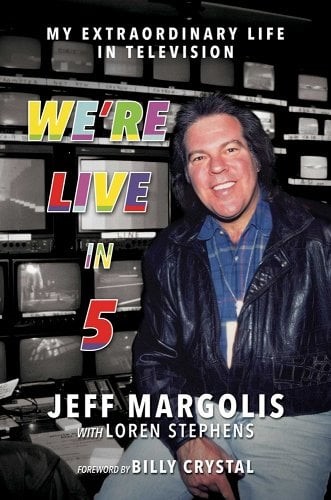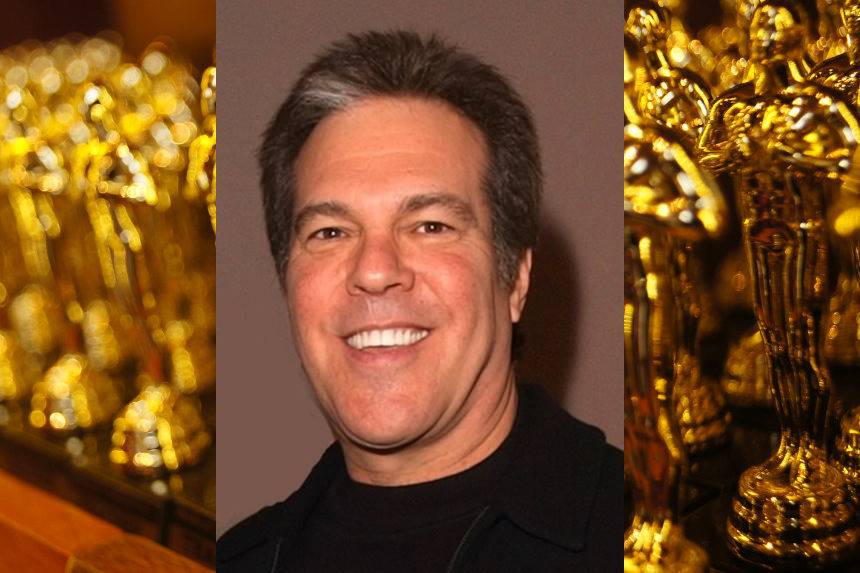
Many fantasize about winning an Oscar. Growing up, Jeff Margolis dreamed about directing the Oscar telecast. Between 1989-1996, he shepherded Hollywood’s biggest night into billions of homes, for which he was honored with two Director’s Guild Awards and an Emmy award (he won another Emmy for the incredible Sammy Davis, Jr. 60th Anniversary Special). His new memoir, We’re Live in Five, chronicles a star-studded life behind the camera and takes us behind the scenes of TV’s golden age of variety. In advance of the Academy Awards ceremony March 10, Margolis spoke with The Saturday Evening Post about what it’s like to direct Hollywood’s equivalent of the Super Bowl. Are Hollywood’s royalty hard to handle on Oscar night? How did his career survive his very first Oscar ceremony in 1989, with its disastrous Snow White production number? What about bathroom breaks during the near-four hour telecast?
Here are excerpts from our conversation (edited for clarity and length).
Donald Liebenson: You write in your book that as a child you declared that one day you would direct the Oscar ceremony. What was it about the Oscars that enthralled you?
Jeff Margolis: I was fascinated with musical variety, and the Oscars was the pinnacle of that. At one point, the Oscars was the most watched television show until the Super Bowl. I loved everything about it, and I just wanted to be there. It was my dream.
DL: Take us inside Hollywood’s biggest night. What is job one for the director of the Oscars?
JM: You need to get the show on the air. You need to put all the puzzle pieces together. You start four months ahead. The producer and director work very closely. In the last couple of weeks, you work 24/7. You want to get the show in a running order that will keep people from changing the channel. That’s really job one. I want to bring the people at home into the room. It’s difficult for a director to do that because there are a lot of cooks in the kitchen. You’re supposed to get the Oscars off the air in three-and-a-half hours. You’re thinking about that the whole time. I want to make it fun and interesting not only for the audience in the room but for the billion people around the world watching the show. It’s a lot of pressure, but it’s good pressure.
DL: This is the 35th anniversary of your first Oscar telecast as director, which is infamous for the opening production number with Rob Lowe dancing with Snow White to the tune of “Proud Mary.” What is your most vivid memory of that night?
JM: The critics hated that opening number. The Academy hired [producer] Allan Carr because everyone wanted a different show that year. He was a Broadway and movie producer who had never done television. He wanted to try everything. My most vivid memory was there was no host. Allan Carr paired presenters together in something he called couples, compadres, and companions, and it worked. One of the other things we decided was that since being nominated is itself an honor, presenters would not say, “And the winner is…” when they opened the envelope, but “The Oscar goes to…” Now, all the award shows do that.
DL: You saw the script, obviously. Was it your place as director to try and stop the opening number? Surely you knew that could not end well.
JM: I had worked with Allan before. He was Ann-Margret’s manager, and I had done a couple of specials with her. I told him I didn’t want to be a naysayer, but that it wouldn’t work on television and that people won’t sit for a 20-minute production number at the Oscars. It ended up 12-13 minutes. I did the best I could. Allan listened to a certain point, and he said the Academy hired him to do something different and he was going to make it different. He said to me, “You’ll make it sing.” [laughs]
DL: Allan Carr’s career never recovered, but yours did! You did eight Oscar telecasts in all.
JM: I just knew how to make good television. My job was to make everything work. That show did very well in the ratings. All you heard about was the opening number, but there were many other good things. That was the year we created the In Memoriam package. Before that, the Oscars paid tribute to one movie star who passed away during the year. I said that the show is about everybody in front of and behind the camera who makes movies.
DL: How do they choose who goes into the In Memoriam? Because I still haven’t forgiven the Academy for snubbing [character actor] Dick Miller.
JM: [Laughs] That’s always the first phone call the Academy gets the next morning; why so and so was left out. The producer and the Academy work closely with whoever is hired to put the In Memoriam segment together. That person finds out everyone who passed away and puts together the first official list. You try to include as many people as you can in the allotted three-to-four minutes. You want to honor everyone, but you don’t want to lose the audience, and some people are more well-known than others. There are a lot of things to think about.
DL: As the director of the Oscars, you can say you’ve directed nearly all the major movie stars and screen legends of their time. You have great stories in your book about Warren Beatty and Jack Nicholson and then Barbra Streisand taking over your dressing room.
JM: I’ve got a picture of everyone I’ve worked with.
DL: Who stands out as someone who lived up to their legend status?
JM: Paul Newman. He was really special. All those major stars were wonderful. I never had any kind of negative interaction with any of them. Nobody was difficult, they all wanted to be there.
DL: From your book, it seems an Oscar director needs to be a psychologist, a negotiator, a drill sergeant. What are the most important qualities a director of the Oscars should have?
JM: You mentioned most of them. In my book, I list the 11 rules of the road. Numbers 1, 5, and 11 are to be kind. Many of the movie stars are nervous. They’re not used to doing live television and some need handling.
DL: Was there an actor who you were surprised was nervous?
JM: Sophia Loren. She was so nervous she was shaking.
DL: You also write in the book about how once the show starts, you cannot leave your perch. The show is three-and-a-half hours plus. Have you ever had a bathroom emergency?
JM: I was very good about making sure on the day of the Oscars I never ate. The night before I would have a cup of soup and crackers, and the day of the show, I swear to God, I never ate. I watched my intake of fluids. When the show was over, I always stopped at the bathroom to empty out before I went to thank everybody on the crew.
DL: You directed the telecast when David Letterman hosted. That show gets a bad rap, but I thought he did a great job.
JM: I did, too. I never spoke to Dave after the show. He was a little bit — nervous is not the right word — but he wanted to do such a good job. He knew he would be compared to Johnny Carson, Bob Hope, and Billy Crystal. I saw him a couple of weeks after, and in regard to returning to host, he said, “I did it, I’m done.”
DL: Do you still watch the show? Do you direct it from home?
JM: I never miss a moment. The first couple of years after I stopped directing it, I used watch with a tear in my heart. Now, I enjoy watching them try new things. It’s the most difficult show to do in every aspect, but Jimmy Kimmel does a good job as host. But I do miss Billy Crystal.
Become a Saturday Evening Post member and enjoy unlimited access. Subscribe now




Comments
Thanks for this insightful behind-the-scenes interview with Jeff Margolis, Oscar director from 1989-’96. I have to say you were in charge during what were arguably the broadcast’s last great years. I believe the one in ’89 featured a dance number with Lucille Ball and Bob Hope, the month before she passed away. It’s probably one of the reasons most of us were more shocked than we would have been otherwise, because she looked and danced so well just weeks earlier on the Academy Awards.
Without mentioning all of the things above, you did an amazing job at pulling off great shows and made it “look easy”, but was extremely difficult and stressful, down to the smallest of details. There was a big feature in Los Angeles magazine in ’22 that came out just days after that disastrous broadcast with Hollywood insiders (who chose to remain anonymous) that they would like to see the Oscars if not go away entirely, be scaled way back.
The ratings have been steadily declining, and ABC being forced to give ad rates more akin to a fire sale than the Super Bowl. Like the auto industry, the ‘stars’ of today are as generic and interchangeable as the films advertised during the Bowl last month. It’s been this way for years, but seems unsustainable.
Kaye made a great point about Billy Crystal. He certainly was a worthy successor to Bob Hope and earlier hosts. Jimmy Kimmel does a good job as host only within the context of today. His jokes and put downs of Trump are stale, just like with the women of The View and CNN. I guess none of them realize even at that this late date their put downs are having the opposite effect of what they’re hoping to achieve.
Mark’s comments are spot on too. Movie Stars of years ago had the polish and refinement to keep social rights agendas and political comments to themselves. But that’s the difference between Movie Stars of the Golden Age, and the celebrities of the Garbage Age.
The Oscar’s have become so political. I don’t really enjoy hearing about celebrities social rights agendas or comments on politics. If these points were eliminated it would make for a more enjoyable evening.
I miss Billy Crystal too. when I’m down, I watch reruns of his Oscar opening routines.